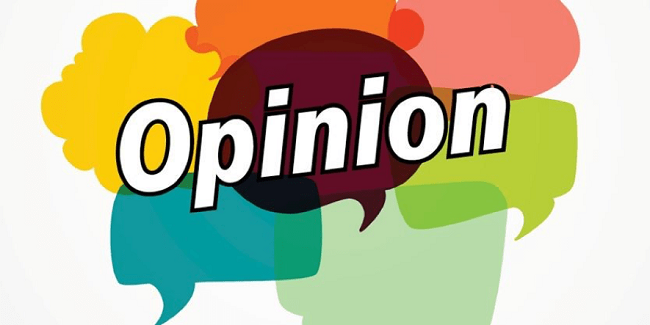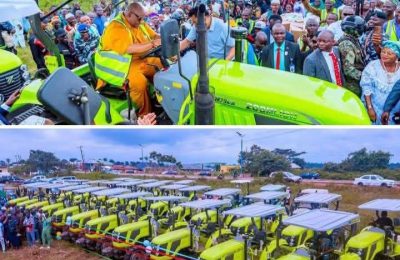

DURING his campaign for the Nigerian presidency, Asiwaju Bola Ahmed Tinubu pledged that he’d ‘hit the ground running’ if elected. That’s exactly what he has done since his inauguration in May 2023. In the one year since his ascension, he has run the affairs of the nation at a rather frenetic pace – implementing tough economic policies that have impacted the lives and livelihoods of Nigerians in far-reaching ways; rejigging the nation’s security apparatus in a bid to tame the rampaging monster of insecurity; and forging bilateral and multilateral partnerships with national governments, intergovernmental agencies well as the international investor community. Below is my analysis of the import and outcomes of President Tinubu’s engagements in three key areas: Economy: It would be an understatement to say that President Bola Tinubu inherited a deeply troubled economy. So, even as he vied to replace Muhammadu Buhari in the Aso Villa seat of power in Abuja, Tinubu knew that neither he nor any of his rivals for the highest office in the land would be able to move the needle of recovery (let alone development) even an inch, unless they were willing to implement tough and potentially disruptive structural reforms. Moments after being sworn in as President, Tinubu began to do just that; he swiftly announced an end to petrol subsidies – a double-edged sword which on one hand has freed up badly-needed public funds for reallocation to areas designed to spur growth and economy recovery, but on the other hand has also raised the price of petrol by over 200%, and driven millions of beleaguered Nigerians deeper into poverty.
Weeks later, he also announced the unification of the naira’s multiple exchange rates, thereby ‘floating’ the currency. Under the previous regime, the official exchange rate of the naira to the dollar was mostly fixed, rather than determined by market forces. But the CBN’s inability to meet the demand for dollars at this rate contributed to a thriving forex black market and eroded investor confidence in Nigeria. But the new policy has enabled the freeing of resources the CBN previously used to ‘defend’ the naira. It has also reduced the budget deficit, and is beginning to attract foreign investment – albeit in trickles at the moment, though the government hopes that these trickles will become a flood in due course. These reforms have not been without their challenges, of course – especially with regards to their social impact. But in spite of these challenges, they have been generally well-received in many influential quarters at home and abroad. Stakeholders have also given kudos to the government for its efforts at mitigating social impact with targeted interventions aimed at helping working families weather the economic storms. Two of such interventions include the Student Loan Scheme (designed to enable indigent students to access interest-free loans for their educational pursuits in any Nigerian tertiary institution) and the Consumer Credit Scheme (aimed at making it easier for working Nigerians to own a home, a car, household gadgets, and generally afford the good things of life without the pressure of having to pay for them at once). More of such interventions are underway.

As he marks the first anniversary of his administration, the President says these reforms will be consolidated in his bid to steer Nigeria towards prosperity – especially in the areas of public finances and expenditure, as well as tax management. But beyond the need to mobilise more resources for development, Tinubu’s government is figuring out the most efficient spending pathways towards ensuring medium and long-term economic returns, boosting Nigeria’s productive capacity, diversifying its exports away from oil, and putting the country in a better position to leverage opportunities such as the African Continental Free Trade Area Agreement (AfCFTA). Security: Insecurity in Nigeria has, over the years, become a hydra-headed monster, with each of the country’s 6 geo-political regions the victim of at least one of those hydras. Name them: Farmer-herder conflicts in the north-central. Insurgency in the north-east. Banditry in the north-west. Separatist violence in the south-east. Piracy off the coast of the south-south. Not to mention: Ritual killings. Prison breaks. Attacks on military and police facilities and personnel. ‘One-Chance’. The list goes on and on.
In unveiling his manifesto last year, Tinubu underscored the place of security as a centrepiece of his agenda. “We shall reform both our security doctrine and its architecture,” he pledged. “We shall invest more in our security personnel, which means more than an increase in number (but also in terms of) better training, equipment, pay, and firepower.” The President also promised to implement a bold, no-nonsense crime-prevention reform plan to facilitate the establishment of highly-trained and disciplined anti-terrorist battalions (ie special units that would “seize the strategic and tactical initiative and give terrorists, kidnappers and bandits no respite”). As he prepared to take office, Tinubu recognised that insecurity was an existential threat, not just to the lives and property of Nigerians, but to the corporate existence of the country itself.
And over the course of a year, his administration has acted in accordance with that understanding. He signaled his intent with his appointments to the top of the military and police totem pole. The pedigree of these appointees spoke volumes. And so did the sense of urgency the President imparted to his service chiefs upon their assumption of office, which was also extended to the civilians whom he tasked to oversee their work; recall that last year, the Minister of Defence, Abubakar Badaru, quoted the President as declaring in no uncertain terms that the jobs of all his appointees, military and civilian alike, would be in jeopardy if they didn’t end insecurity within one year!
For the first time in the country’s history, also, the administration not only devoted its highest allocation for security so far (in the 2024 budget), but also made it clear that a large chunk of the allocation was specifically to enhance inter-agency collaboration in the fight against insurgency and criminality. But of far greater import than the tangible evidence of what the Tinubu-led government has done to reset the security ecosystem in the past one year, is the palpable evidence of new thinking (a reorientation, if you like), and a receptiveness to new ideas and approaches to the problem, that this government has demonstrated – which is a far-cry from the obstinate, dyed-in-the-wool approach of yesteryears. In response to the recommendations of security experts and other knowledgeable stakeholders, the administration has either made progress, or is exploring the best pathways, in the following directions, among many others: – Auditing security budget allocations and their implementation to identify areas of inefficiency and corruption; – Confronting threats to the W/African sub-region. As the current Chairman of ECOWAS (the sub-regional economic and political grouping), Tinubu has been diligent in working to rejig the body’s security and conflict-management mechanisms; – Enhancing the capacity of training institutions such as the Nigerian Defence Academy and Police Colleges across the country, etc. At a recent graduation ceremony of the NDA, the President described sound education and training as ‘the ultimate security strategy’.
Implementing meaningful and lasting police reform, as well as taking a more critical look at the vexed issue of multi-level policing; – Getting the buy-in and active collaboration of community leaders, civil society organizations and other stakeholders in order to deepen understanding of the unique security dynamics in a manner that fosters trust, encourages information-sharing, and strengthens the bonds between communities and security forces – as well as empowering (and equipping) local communities to protect themselves; and – outlining, as a critical social investment, a process for judicial redress and compensation for civilians and communities impacted by military and police brutality and collateral damage. Going forward, President Tinubu has pledged to confront the menace of insecurity in non-kinetic ways as well, by addressing the underlying socio-economic factors that contribute to insecurity (ie investing more robustly in education, healthcare and infrastructure development) in ways that create jobs, alleviate poverty and foster inclusive economic growth as a bulwark against criminality as well as regional and ethno-religious resentment that leads to subversion and violent separatism.
Foreign affairs: Upon its emergence as an independent nation, Nigeria sought to play an active role on the international stage commensurate with her size, population and economic might. In the 1960s, ‘70s and ‘80s, her foreign policy was guided by a set of fundamental principles: Africa’s unity and freedom from imperialist influence; enhancing Nigeria’s influence on the continent; the peaceful settlement of disputes between nations; non-alignment (in the Cold War which raged at the time); non-interference in the internal affairs of other nations; and regional economic cooperation and development.
The dramatic shifts in the global geo-political landscape in the late 1990s and since the dawn of the 21st century (coupled with her internal challenges brought on by a severe economic downturn and escalating insecurity), have forced Nigeria to reassess her foreign policy objectives more on the basis of her interests than on the afore-mentioned principles. This pragmatic approach, however, recognizes the fact that the challenges facing the global community as a whole CANNOT be solved by any single country acting alone – no matter how powerful that country may be. These problems which, if left to fester without concerted global action, will negatively affect the fortunes of all nations, range from the proliferation of small and light weapons as well as weapons of mass destruction; climate change as a consequence of human action; irregular migration and its potential to fuel conflicts; the trafficking in hard drugs and in humans (especially women); and international terrorism. In a multi-polar world increasingly being defined by new social paradigms and disruptive technologies, Nigeria has learned to adopt a diplomatic approach geared towards advancing her strategic interests while still shouldering the obligations of a responsible global citizen.
This clear-headed understanding of current global realities is encapsulated in President Tinubu’s foreign policy – and in particular, the 4D Approach which his government unveiled in August 2023. This approach is anchored on four critical pillars (Democracy, Demography, Diaspora and Development). Under the ‘Democracy’ pillar, Nigeria aims to project itself as a champion of democracy, and to fully play its role as a proactive democracy, one that will help guarantee the peace, security and stability of West Africa and Africa under constitutional government. Under the ‘Demography’ pillar, it is the projection of many global bodies that Nigeria would be the 3rd most-populous country in the world by 2050 – after India and China. Under this pillar, Nigeria will push for membership in influential groupings like the G20. As Africa’s largest economy and one of the most populous countries in the world, there is no earthly reason, the Tinubu government says, why Nigeria is NOT in the G20. Analysts of this pillar also say Nigeria stands at the crossroads between a “demographic dividend” and a “demographic bomb”. If wisely managed, our population can yield many advantages, as it has done for China, for example. But if not, it will explode in a manner that will reverberate well beyond our borders.
On the ‘Diaspora’ pillar, Nigeria’s growing diaspora community is a primary transmission mechanism for the global reputation of our country. Therefore, a well-served and engaged community can be a powerful tool for national branding. For this reason, the Tinubu government is working towards changing the Nigerian diaspora’s perceptions about their home country – notably by transforming the quality of services they receive from their home government, especially in the areas of passport application, consular services, advocacy, etc. Nigeria also aims to be more strategic in seeing its diaspora as ‘ambassadors’ of Nigeria’s immense potential. The ‘japa’ syndrome among young Nigerians and professionals means that Nigeria has (wittingly or otherwise) become an exporter of labour to other climes. Government aims to ensure that Nigeria derives the benefits from this export. Far from absolving the government of its responsibility to make Nigeria itself more conducive to thrive in, this pillar aims to ensure that emigration works for us as a country – in terms of financial remittances, acquisition of talent, diaspora investment, and so forth. The Nigerians in Diaspora Commission (NiDCOM), which was established by former President Buhari in 2019, has been active in serving Nigerians in Diaspora in collaboration with the Ministry of Foreign Affairs.
The fourth pillar, ‘Development’ sees foreign policy as a tool for attracting and driving investment into the Nigerian economy through collaborations with a wide range of public and private-sector stakeholders, in a bid to achieve sustainable socio-economic development. At this critical juncture, Nigeria needs all the investment it can get, local or foreign. Tinubu’s 15 or so foreign trips since he took office last May are mostly driven by this all-important ‘development’ component of his foreign policy thrust. Throughout his sojourns abroad, the President has sounded basically the same consistent tone: that Nigeria (for all its current challenges) presents an irresistible ROI opportunity for would-be investors, who will do well to capitalize on Nigeria’s twin competitive advantages of immense natural wealth and a vibrant, highly-engaged, creative and tech-savvy youth population – given that the bottlenecks that have historically impeded the ease of doing business in Nigeria are now a thing of the past.
The object of the 4D policy, according to Foreign Affairs Minister Yussuf Tuggar, is to “reinforce Nigeria’s position as a leader in Africa; enhance its influence globally; maximise opportunities; drive major multilateral reforms, and foster improved national security, trade, and investment.” By that measure, President Tinubu has succeeded, in his first year in office, in pulling Nigeria from the margins of the global scheme of things to its mainstream. And as he strides into his second year, it is only natural to expect that the momentum of the 4Ds would be accelerated to keep pace, not only with our developmental imperatives, but also with the demands of an ever-evolving and inter-dependent global village.
Kudos, Mr President! Here’s to an even more impactful second year in office.
- Abdul, publisher and writer, hails from Lagos.
ALSO READ: Drama as Binance executive, Gambaryan, collapses in court over alleged ill-health








